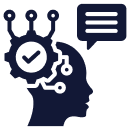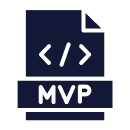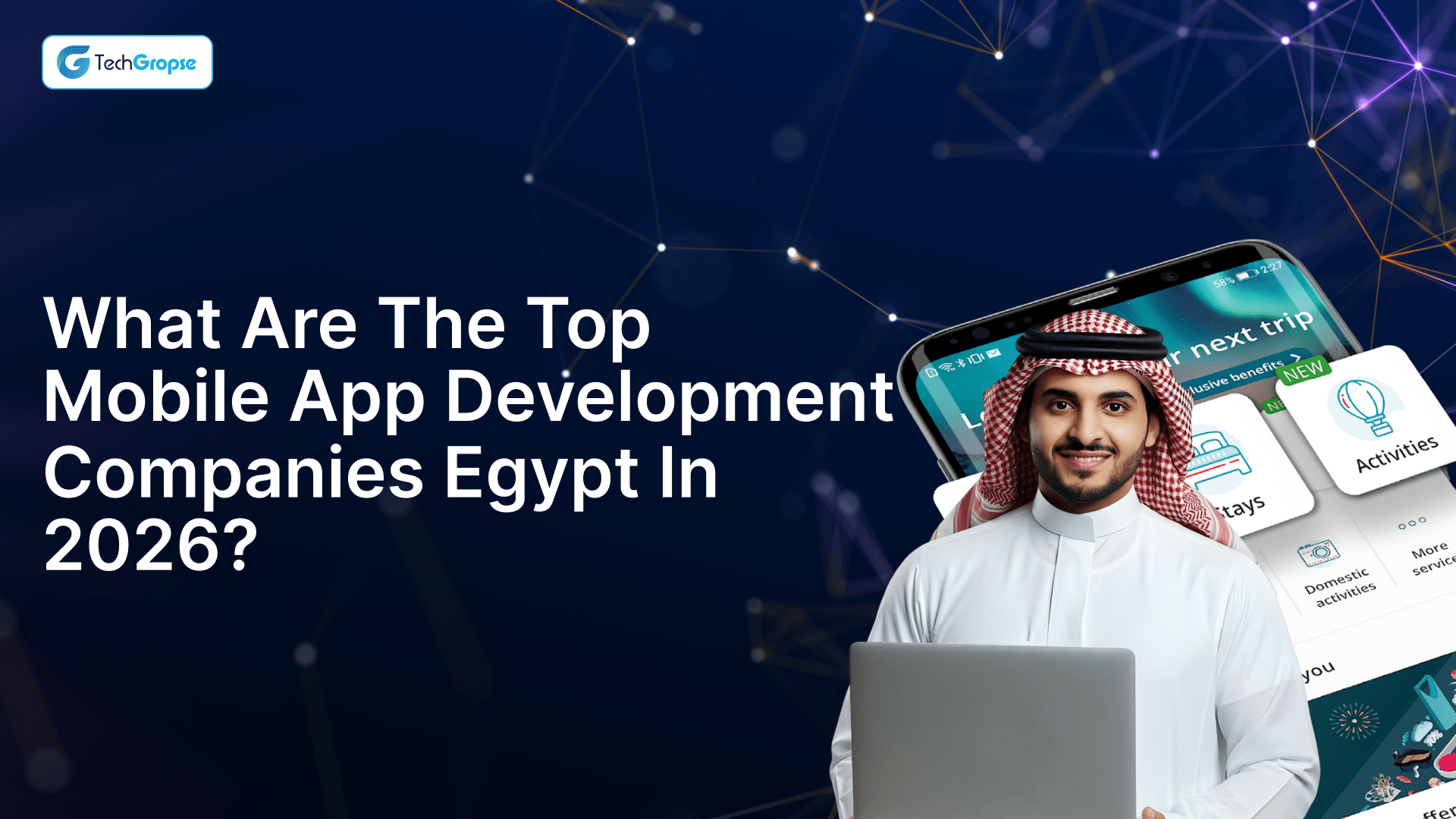Picture this scenario: a startup founder sits in her San Francisco office, staring at devastating user retention numbers. Six months. $200,000 invested. The harsh reality hits hard. “We built what we thought users wanted,” she tells her co-founder, pointing at the disappointing metrics on her laptop screen. “Turns out, we couldn’t have been more wrong.”
Sound familiar? This exact scene happens every single day across startup hubs from Silicon Valley to Austin to New York. But something fundamental has changed in 2026. The founders who are actually winning aren’t just obsessing over speed anymore. They’re obsessing over intelligence. Smart MVP development has become the new competitive edge, and artificial intelligence is the secret weapon making it all possible.
Here’s a reality check that might surprise you: the global AI market is experiencing explosive growth right now, with projections indicating 26.57% annual growth through 2030, ultimately reaching US$1.01trillion. Meanwhile, most startups are still relying on the same old MVP playbook their predecessors used five years ago. This creates a massive gap between what’s possible and what most entrepreneurs are actually doing.
Why Most MVP Approaches Are Burning Cash

Let’s get brutally honest here. Traditional MVP development has some serious flaws that cost startups millions of dollars every year.
The Feedback Black Hole Problem
Here’s how most MVPs work: build something, launch it, then wait around for weeks hoping users will tell you what they think. Maybe you send surveys that get 3% response rates. Maybe you schedule user interviews that half the people don’t show up for. By the time you get meaningful feedback, your competitors have already moved ahead and your bank account is looking pretty scary.
Take this real example: a fitness app startup spent four months building what the founder considered revolutionary workout tracking features. Post-launch user engagement? Practically zero. The feedback they eventually got? “This is okay, but I’ve already got three apps that do this stuff better.” Four months and $120,000 later, they were back to square one.
Playing Feature Roulette
Without strong data to inform your decisions, selecting MVP features is an expensive game of guessing. Teams wasted hours in conference rooms arguing over whether to add feature X or feature Y, typically resorting to decisions based on who yells the loudest or has the coolest title.
This results in two equally bad outcomes: you create way too much stuff (users get confused with overly complicated products) or way too little (excluding the key features that would indeed hook people).
The Dangerous Assumption Game
Traditional MVP development runs on assumptions. Assumptions about user behavior. Assumptions about market demand. Assumptions about what problems people actually care about solving.
But assumptions can kill startups faster than almost anything else. They lead you down expensive rabbit holes, building solutions for problems that don’t really exist or solving real problems in ways that users find annoying.
Role of AI in MVP Development

AI in MVP creation doesn’t eliminate human vision and creativity—it enhances them with data-driven insights that were totally inaccessible only a few years back.
Think about this comparison: while traditional approaches rely on interviewing maybe 50 potential users, AI can analyze behavior patterns from millions of users across thousands of similar products. While teams spend weeks guessing which features might work, machine learning algorithms can predict user engagement rates with remarkable accuracy.
Instant Market Intelligence
Instead of waiting for post-launch feedback, AI-powered MVP development provides real-time insights into user behavior patterns, market trends, and competitive positioning. Decision-making becomes data-driven rather than assumption-based.
Look at this success story: an online store startup employed AI to scan thousands of social media posts discussing their target sector. They discovered a specific pain point that hadn’t appeared in any traditional market research—and it became their MVP’s primary value proposition. Three months post-launch, they hit $50K monthly recurring revenue.
Predictive User Experience Design
AI for mobile app development has reached a sophistication level where teams can simulate thousands of different user journeys before writing any actual code. These simulations identify potential friction points, predict user drop-off rates, and optimize conversion flows with impressive precision.
Predictive insights have proven valuable for user experience optimization. A fintech startup that used these analytical capabilities to redesign its account setup process saw significantly higher completion rates compared to its original design concepts.
Intelligent Feature Prioritization
Rather than relying on gut feelings or executive opinions, AI can analyze market demand signals, development complexity estimates, and predicted user impact to create truly data-driven feature roadmaps.
The Business Impact: Real Numbers

Companies implementing AI-powered MVP development aren’t just building better products—they’re building more successful businesses. The US AI market is projected to reach $851.46 billion by 2034, growing at 19.33% annually. Smart startups are positioning themselves to ride this massive wave.
Faster Product Validation with AI
Traditional validation processes take months. AI-enhanced validation happens in weeks, sometimes days. Teams can test market demand, validate user personas, and optimize pricing strategies before making significant development investments.
Resource Efficiency That Actually Matters
Every startup founder worries about runway. AI helps optimize resource allocation by predicting which features will drive real user engagement and which will get ignored. No more expensive mistakes building features that collect digital dust.
Next-Level Competitive Intelligence
While competitors conduct manual market research, AI tools analyze their product updates, user sentiment, and positioning strategies in real-time. Teams stop reacting to competition and start anticipating their moves.
Game-Changing Tools for Lean Startup and AI Integration

The democratization of AI technology means startups don’t need massive budgets or PhD-level expertise to leverage these capabilities. Several tool categories are particularly impactful:
Market Intelligence and Validation Platforms
These tools scan search trends, social media sentiment, and competitor performance data to validate market demand before teams write their first requirements document. They can identify emerging trends and predict optimal timing for market entry.
AI-Enhanced Design and Prototyping
Modern design platforms use artificial intelligence to generate user interfaces, optimize navigation flows, and create interactive prototypes from simple text descriptions. What used to require weeks of design iteration now happens in hours.
Behavioral Prediction Systems
Platforms study user behavior from comparable products and markets to forecast how audiences will engage with new features. Teams are able to refine experiences before launch instead of after—a complete change in product development approach.
Automated Quality Assurance and Testing
AI-driven testing platforms identify bugs, performance bottlenecks, and usability issues throughout the development cycle. MVPs launch with enterprise-grade reliability despite startup-level budgets and timelines.
Future of App Development with AI: Current Trends

The future of app development with AI is happening today, and visionary startups are already taking advantage of these new trends:
Autonomous Development Workflows
Next-generation AI platforms perform more sophisticated development work themselves, from code creation to bug finding and performance tuning. Small teams can do what once needed enterprise-level resources.
Hyper-Personalized User Experiences
AI-powered personalization extends far beyond simple recommendation engines. Dynamic interface adaptation, contextual content customization, and behavioral prediction create unique experiences for each user.
Advanced Predictive Business Intelligence
Sophisticated AI systems provide business intelligence that predicts market trends, user churn patterns, and growth opportunities with accuracy, enabling proactive strategic decisions rather than reactive responses.
Implementation of AI in MVP Development: Practical Steps

Successfully implementing AI-powered MVP development requires balancing innovation with practical execution. Here’s how successful startups approach this challenge:
Phase 1: Intelligence-Based Market Validation
Start by leveraging AI tools to analyze market demand signals, competitive landscapes, and user behavior patterns. This foundation ensures MVPs address genuine market needs rather than assumed problems.
Phase 2: Data-Driven Feature Prioritization
Use predictive analytics to rank features by potential impact, development complexity, and market demand. Create roadmaps that maximize return on development investment.
Phase 3: AI-Enhanced Development and Testing
Integrate AI tools throughout development processes, from automated code review to predictive user testing. Maintain quality standards while accelerating development velocity.
Phase 4: Real-Time Learning and Optimization
Deploy AI-powered analytics from launch day to continuously optimize user experiences and identify expansion opportunities.
Measuring Success: Key Performance Indicators

Traditional MVP metrics remain important, but AI-enhanced development enables more sophisticated success measurement:
Prediction Accuracy Metrics
Track how well AI predictions align with actual user behavior. This validates intelligence systems and improves future forecasting capabilities.
Time-to-Insight Measurement
Compare how quickly AI systems provide actionable insights versus traditional analysis methods. This quantifies the velocity advantage of intelligent development approaches.
Resource Efficiency Indicators
Compare development costs and timelines for AI-enhanced projects versus traditional approaches. Document the economic benefits of intelligent development methodologies.
Product-Market Fit Acceleration
Track time required to achieve key validation milestones. AI-enhanced MVPs typically reach product-market fit significantly faster than traditional approaches.
Overcoming Implementation Challenges

AI MVP development for startups offers substantial benefits, but implementation challenges exist. Experience working with numerous startups reveals these common issues:
Data Quality and Availability
AI systems require high-quality data for accurate insights. Implement robust data collection from day one. Consider partnerships with data providers when internal data proves insufficient.
Technical Complexity Management
AI integration complexity can overwhelm small teams. Work with experienced MVP development services USA providers to mitigate this while building internal capabilities over time.
Cost Management
AI tool costs can escalate quickly without proper planning. Establish clear budgets and focus on high-impact applications to manage expenses while maximizing benefits.
Skill Gap Bridging
Most startups lack in-house AI expertise. Address this through partnerships with an AI development company, USA services, structured training programs, or strategic hiring as resources permit.
Mobile App Development Company in the USA: Strategic Benefits for MVP Development

The United States has emerged as the global leader in AI development company USA services, particularly for mobile app MVP development. Several factors make location strategically important:
Battle-Tested Technical Expertise
Leading US-based development companies have invested heavily in AI integration capabilities across hundreds of projects. They understand advanced machine learning platforms, natural language processing tools, and predictive analytics systems that smaller teams struggle to implement effectively.
Premium Infrastructure Access
Established development partners maintain enterprise relationships with major AI platforms, providing startups access to premium tools and services at significantly reduced costs. This includes priority technical support, early access to new features, and bulk licensing advantages.
Deep Market Intelligence
Experienced mobile app development company in the USA brings invaluable market context from working across diverse industries and use cases. They understand industry-specific user behavior patterns, competitive landscapes, and regulatory requirements that can determine MVP success or failure.
Proven Risk Management
Professional development partners implement mature risk management processes, including AI model validation protocols, bias detection systems, and compliance frameworks, ensuring products meet US regulatory standards.
Scalable Technical Architecture
These companies design technical foundations with AI scalability in mind, implementing cloud infrastructure, data pipeline architecture, and security frameworks that handle growing AI workloads as startups scale.
Current Market Reality
Recent statistics indicate that 78% of companies today employ AI in at least one business process, compared to 55% only a year ago. This accelerated uptake generates competitive pressure in every business segment.
For startups, the consequences are stark: those who adopt AI-driven MVP development now possess serious benefits over traditional rival approaches. The technology is available, benefits have been demonstrated, and competition maps increasingly tilt in favor of intelligence-led development.
Strategic Implications for Startups
The shift towards AI-driven MVP creation is the biggest change in startup practice since the invention of lean principles. It’s not just a matter of new tools—it’s a matter of literally reimagining how products come to be conceptualized, tested, and launched.
AI-powered Smart MVP creation provides startups the ability to make data-informed decisions from day one, run cheap and quick tests of assumptions, and build products that actually resonate with target markets
Together with lean development techniques and intelligent automation, accelerated product validation with AI makes for a powerful startup success paradigm that wasn’t even possible two years ago.
Entering the latter part of 2026, one thing has become certain: successful startups will be those adopting intelligence-driven development while keeping intact the vision and creativity that contribute to entrepreneurship success.
FAQs
AI-powered MVP development is 20-30% more expensive upfront but saves by 40-50% overall by preventing expensive pivots. The majority of startups realize ROI in 3-6 months through accelerated validation and increased user retention.
The most important ones are market validation platforms, predictive user behavior analytics, AI design tools, automated testing systems, and real-time analytics. Most are for non-tech users and have no-code/low-code versions.
Basic integration of AI completes in 2-4 weeks of market validation and analytics. Predictive modeling takes 4-8 weeks. Time can be cut by 30-50% by using experienced development partners.
Yes. New AI tools are not difficult to use, and most development services offer AI startup integration as a specialty. The key to success lies in the right tools and partners and approaching first with high-impact applications.
Principal dangers are overtrust in predictions, poor quality data, higher complexity, and AI bias. These are addressed by right validation, human oversight, straightforward initial deployments, and mature development collaborations.











































































